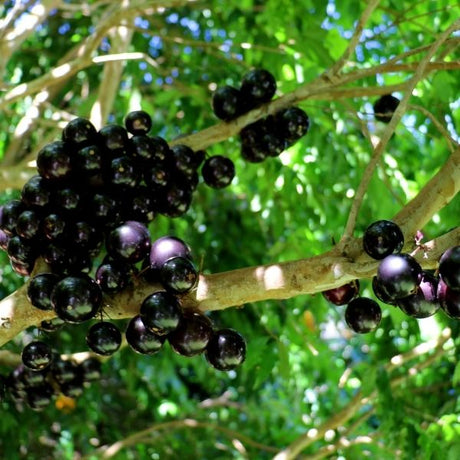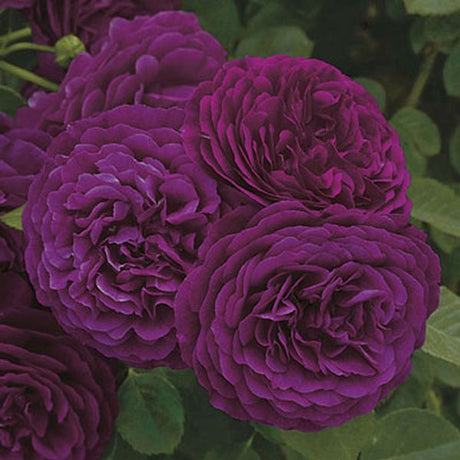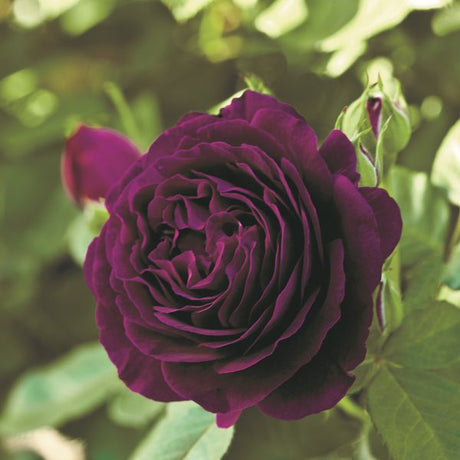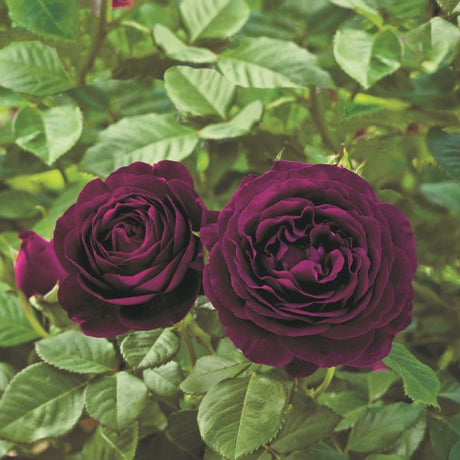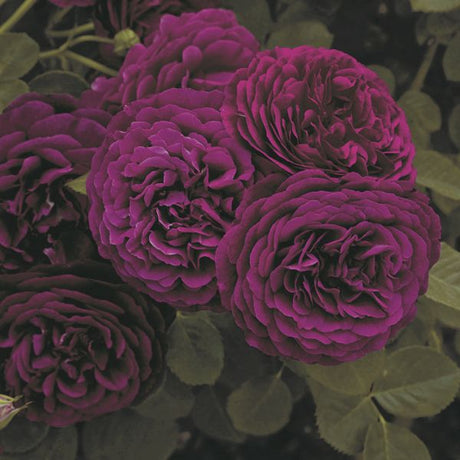Happy Friday the 13th!
From folks believing that plants had magical properties to plant ingredients able to turn lead into gold, to making love potions from flowers - plants and herbs have always captivated the imagination and have been steeped in superstition! The Victorians even used them to communicate!
Fairy rings, garden idioms, and old-wives tales are as deeply rooted in lore as they are in our day-to-day lives! There’s even a science that delves into plant lore and myth! Gardeners tend to create their own superstitions as we go!
Here are a few beliefs from days gone by that still have a foothold in the back of our minds or even our everyday practices - even if they are far from the truth!
Common Garden Superstitions
It is amazing how much our garden décor was inspired by myths and superstitions! 
- Scarecrows were once thought to scare away more than crows! Giving them a hat to keep cool in the summer led to a successful harvest - but just don’t give them your best jacket.
- Keeping a gazing ball in the garden was thought to ward off evil and attract good luck.
- In the practice of Feng Shui, depending on where you hang your chimes (north, south, east or west) you’d encourage good opportunities for your children, bring fortune and prosperity, deflect dark magic, or attract bad omens.
- The humble garden gnome was thought to protect your garden from dark magic and evil.
- A green man’s face on a tree or wall attracts good spirits to watch over your home.
Nowadays, we know why people get sick, and sometimes our bad luck is our own doing, but folks in the old days didn’t have that kind of scientific knowledge to back up why tragedies happened.
So they came up with some very strange superstitions, customs, and beliefs!

Plants and Herbs With Magical Powers?
One bad apple spoils the bunch, but it does hold some truth, and we can understand why Tomatoes (that are in the nightshade family) were given their bad rap. But knowledge is power, and our plant knowledge is growing exponentially every day!
- Parsley was considered so tricky to grow from seed that gardeners would sow it in threes. Two for the devil and one for the gardener. Its association with the devil for the longest time kept it from becoming the culinary standard it is today! Those seeds that didn’t grow were thought to have been kept by hell itself. But nowadays we know Parsley seeds are slow to get growing.
- Lavender or Rosemary by your garden gate protected your home from evil and invited good luck! Rosemary had loads of uses - from chasing away evil spirits or bad energy to preventing drunkenness to cleansing and purifying everything! But now we know their smell wards off garden pests and insects, and their fragrance gives us a sense of calm.

- Keeping Fennel seeds inside keyholes or hanging Fennel by your door scared away witches and demons while offering protection from dark magics. It’s a tasty root vegetable, but we no longer go that far with its properties! Fennel contains beta-carotene and vitamin C, and both nutrients play an important role in maintaining our health.
- Ivy was thought to protect you from curses. However, the only protection we’ve found these days is that an Ivy cloak acts as a thermal shield, combating the extremes of temperature, which often cause walls to crack and break down.
- Planting Oregano brought joy, and planting Basil for protection from evil and bad luck. Healthy Sage plants mean you are blessed. In reality, we now know they sure do bring joy to the senses and all our favorite recipes. And a successful Sage means you planted it in the right location.
- Sunflowers were planted for happiness and good luck, and we certainly won’t argue with the happiness aspect.

Some seem silly, like planting Chives to prevent lightning strikes. It’s amazing that folks thought these things and that some persist yet today! (Even I may or may not keep a four-leaf clover in my wallet for good luck.)
Unlucky Plants
Here at Nature Hills, we don’t believe in a 'bad plant', just a bad location or improper care for that plant. But in the old days, many plants were big no-nos in the garden!
- A droopy Daffodil was a harbinger of death - Not true, but do deadhead right away
- Banana trees were once thought to have vampires living in them - Nope!
- Don’t bring Dandelions indoors - they make you wet the bed! Luckily, not true!
- Fairies will seek revenge if you pick Foxglove and bring it indoors. Florists everywhere disagree!

Many plants fell out of fashion due to their bad rap, like Ajuga reptans, also known as Bugle and Baby’s Rattle in German superstitions, which were blamed for house fires should the hapless homeowner allow the flowers to be brought indoors. In reality, Ajuga are fantastic groundcover plant and is super beneficial to bees! No fire extinguishers needed.
And it was long considered unlucky to bring spring-flowering Fruit Tree blooms into the home, but today we force these scented blooms for winter arrangements. We can understand that if you pick too many blooms, you’ll not have as much of a harvest. So back in the old days, you depended on as much fruit as possible to feed yourself and your family! Nowadays, pick as much as you like!

White flowers were largely considered unlucky and harbingers of death, which is strange that we use them so widely in weddings and view them as purity now! It goes to show how superstitions shift so quickly throughout the years!
Feng Shui teaches that where an object is placed is as important as what it is; listing Agave and Cactus should both be kept out of the house, and the blooms of the Hydrangea bring loneliness. Pothos sucked the good out of the environment and Thorns of Christ plants are best placed outdoors to ward off bad vibes. Creeper plants of any kind do not allow positive energies to enter your home.
Now our houses are full of them since they’re wonderfully easy to grow houseplants and have more good health benefits than bad! It’s really how you care for them that will either suck the life out of them or have them thrive!
Other Gardening Myths

Knocking your knuckles on a piece of wood to bring good fortune or ward off bad luck. Celtic cultures believed it woke the spirits inside for help. While in Christianity, 'touching wood' or 'knocking on wood' referred to the wood of the cross.
- Threatening to cut down a tree for 3 years to encourage it to fruit better
- Cursing your plants to make them grow better
- Picking four-leaf clovers for good luck
- Talking to plants makes them grow better (still up for debate!)
- Thank your plants as you harvest them, or get bad harvests next year
- You should share gossip with your bees
- Peppers are hotter when you plant them while mad at someone, and occasionally shaking Peppers made them grow better
- Pick Blackberries before September or the devil pees on any fruit that remains (Ew!)

- Daisies kept Fairies out of your garden
- Carrying an Acorn prevented illness and ensured a long life
- Hazel, Alder, and Elder trees were both thought to harbor immense magical properties
- A branch of Maple leaves would stop bats from flying into your home
- Hawthorn Trees were highly regarded as sacred
- Symbolizing plenty, Apple trees were said to bring bad luck if you chopped one down
Stolen plants were thought to grow better than gifted ones (but we’d not recommend it). In the olden days, it was thought that if you received a plant as a gift, you shouldn’t thank the giver for it because that was bad luck! You were supposed to water them for the pot or complement the color instead or the plant may die.
Even certain colors were revered or shunned in the garden and home! In the southeastern US, the color Haint Blue protected the home from evil spirits or 'haints'. Painting objects like the ceiling of your porch or shutters this color kept them at bay. Instead, try planting a Jack Frost Brunnera or other blue perennial by your home to ward off bad vibes!
Hanging Holly leaves around the house kept evil spirits away and was a charm against house goblins. They were also traditionally thought to protect homes from lightning strikes, the wood was used to control horses, and hedgerows protected the home from witches! Just remember to ask permission from the Holly tree before snipping those bright red berries or a branch of their leaves.
We love Holly shrubs and trees, and they look great in winter décor, but all that seems to be quite a stretch of the imagination.
Successful Gardens Aren’t A Myth!
Whether you believe in bad spirits or just bad luck, the key to any great garden is knowing what you are doing, buying quality mature plants, plus having expert advice. There’s a wealth of information at your County Extension Office and, as always, the horticultural staff at Nature Hills Nursery are here to help!
Good Garden Practices
A successful and happy garden isn’t rocket science any more than superstition or luck. Follow these few rules for a successful landscape:
- Choose the right plants for your growing zone
- Know the right sun requirements, soil type, moisture levels, and the best conditions for your plant by checking the Plant Highlights
- Read up on your plant's fertilizing, care, and pruning needs before purchase
- Proper sanitation of garden tools
- Have a plan! Never overcrowd planting beds or choose plants that may get too big
- Plant at the right depth and at the right time of year
- Set plants up for success for life with Nature Hills Root Booster at the time of planting
- Use the Finger-Test method to always know your plant is well-hydrated
- Provide a 3-4 inch layer of Arborist mulch
- Order quality guaranteed plants at Nature Hills and leave the shipping and timing to the experts!
- Get help any time and have all your plant questions answered by our knowledgeable customer service associates and in our #ProPlantTips guide and Garden Blog!

Many feel like they have bad luck, and folks back in the golden days must have had a lot of it to blame it all on innocent plants. Really, we believe you won’t have time for bad luck or be in a bad mood any time you are out in the garden! Those with too much drama in their life clearly aren’t gardening enough!
Don’t leave your plant's health up to chance, or blame fairies and evil spirits for failures! The power to have a successful garden is in your hands, and Nature Hills will help make sure the garden of your dreams isn’t a thing of folklore!
Happy Planting!



